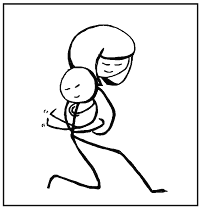
In his discussion of the medicinal use of herbs and plants Wendell Berry states: "Herbalism is based on relationship -- relationship between plant and human, plant and planet, human and planet ... [Using and knowing] herbs can link us into the broader context of planetary wholeness, so that whilst [the herbs] are doing their physiological/medical job, we can do ours and build awareness of our links and mutual relationships." Here Berry is drawing a connection between the 'knowing' of the plants we interact with and rebuilding our relationship with creation as a whole. The knowing and the naming of plants and animals is itself a place of contention. Often, in academic circles, we talk about the power of naming – Adam naming of the animals in the garden is tied to his dominion over the rest of Creation. Within colonial history we see the attempted erasure of Indigenous populations, independence, and knowledge through the re-naming of places, plants, and practices by Settler authorities. So, when I want to think about how my daughter interacts with the world, I think it is vital that we start with experience. Nature trivia can't make up for real interaction -- and perhaps this is something my daughter has taught me over the winter.
We have a series of bird feeders in our backyard and this winter one of my greatest joys was watching my daughter go "Look at that!" "Look at that!" and watch the birds. She spent SO much time looking at the birds, and over the course of the winter we learned their names. It even came to be that we could recognize the chickadee with the bent tail or the same pair nuthatches that come each day. We got to notice the times of day and weather that means the birds come more often. This relationship with the birds meant we did the winter together. I think it might be a beginning of a good way of knowing... one that might help with the healing of the greater problems we have as a culture.
 RSS Feed
RSS Feed
